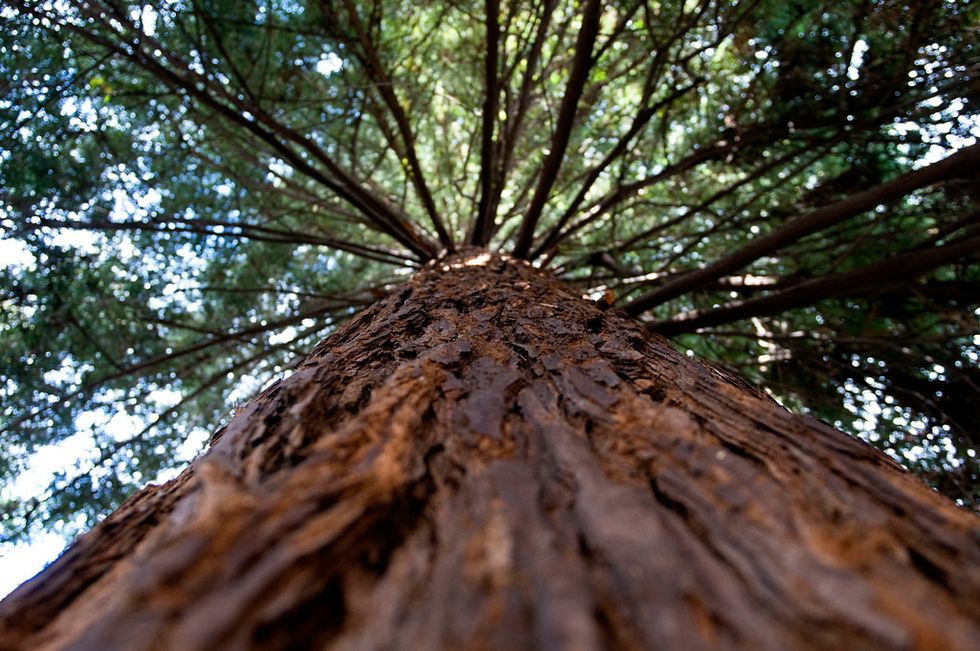My human ecology course required students to read a book that is related to an ongoing environmental issue. I chose to read The Legacy of Luna, a book written by environmental activist Julia Butterfly Hill in 2000. In the book, she recounts her experiences while living in a redwood tree called Luna for two years and addresses deforestation in an anecdotal format. I thought it to be an interesting read, and so here is my summary and thoughts on the book!
Summary
The book begins with a prologue in which a landslide occurs due to deforestation. This is followed by Hill describing how she developed a deep appreciation of forests and wildlife as she prays to find her calling. She begins to do tree-sits and earns her forest name, "Butterfly." After packing her bags, she set out with other environmental activists of Earth First! to tree-sit Luna, the redwood tree. With her fellow tree-sitters, Hill climbs Luna and describes the treacherous but purposeful journey. She learns about large corporations such as Pacific Lumber and how they plan to harvest more timber in the redwood forest. The news makes her come to a realization that someone has to be in Luna at all times, or she would be cut down and harvested. Loggers would threaten to do horrible things, such as blow up Luna, in an attempt to strike fear into the volunteers. Some volunteers feared for their lives and climbed back down Luna, but a few others, including Hill, stayed.
Pacific Lumber loggers begin to cut down trees all around Luna, and the days of living in Luna grew longer and longer for Hill. She survived through cold weather, storms, and other obstacles for Luna. Eventually, talks about Luna's protection came up among Hill, lawyers, and congressmen. The agreement they came to was this: Hill cannot climb into Pacific Lumber's trees again, but with due notice to the company, she would be allowed on the preserved area around Luna. Although this does not mean that other lumber companies will forever refrain from cutting down trees, Hill says that Luna changed her, writing that "one person can make a difference." This quote reflects the primary message of the book — that even one small step towards the right direction can make a change.
Afterthoughts
Hill clearly believes that nature and life are intrinsically beautiful and sacred, worthy of living and thriving. This aligns with the beliefs of transcendentalism, a belief in an innate, beautiful value within all living things. She prays to the universe, and she credits finding her calling through a walk in the forest, which implies that nature can give answers to deep and difficult decisions. Additionally, she reaches self-realization when she is living in Luna. She learns how everything in nature is connected and interdependent, such as Luna, the soil, the sun, and herself. When Pacific Lumber cuts down trees around Luna, Hill witnesses firsthand how it affects the forest, its wildlife, its abiotic features, and the humans who live nearby. Her book promotes the idea of ecocentrism. When forests are clear cut, the connections that once were are destroyed, and this negatively affects the health of the entire forest as a whole. Because of this, she believes that environmental concerns should be at the top of the list and should be the center of all ethical decisions. Hill does not miss any aspects of the topics upon which she touches. She refrains from explaining topics in-depth, but she gives us a good understanding of how it relates to Luna and her mission.
Hill not only uses the book as a diary to recount her memories with Luna, but she also encourages the reader to stand up for what they believe in and stay committed. She seeks to inspire the reader to possibly do volunteer work for the community, humanitarian work, environmental activism, or anything else of which the world is in dire need. A significant point she makes in the book is that deforestation by large lumber companies is detrimental to ecosystems and humans. She also projects the notion that these corporations are exploiting the environment for a quick buck without any regard to the damage being done. In the end, she states that Luna is not entirely safe from harm and that there is more work that needs to be done, which leaves the reader feeling empowered to do good just like Hill did for Luna.


















